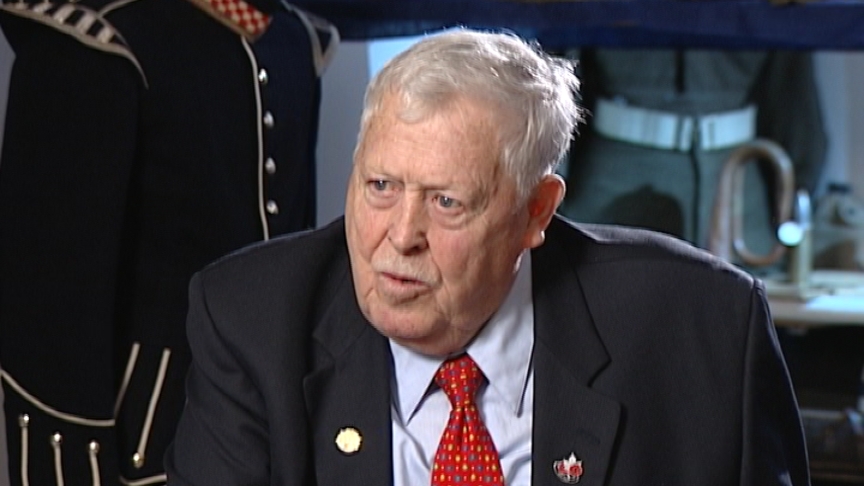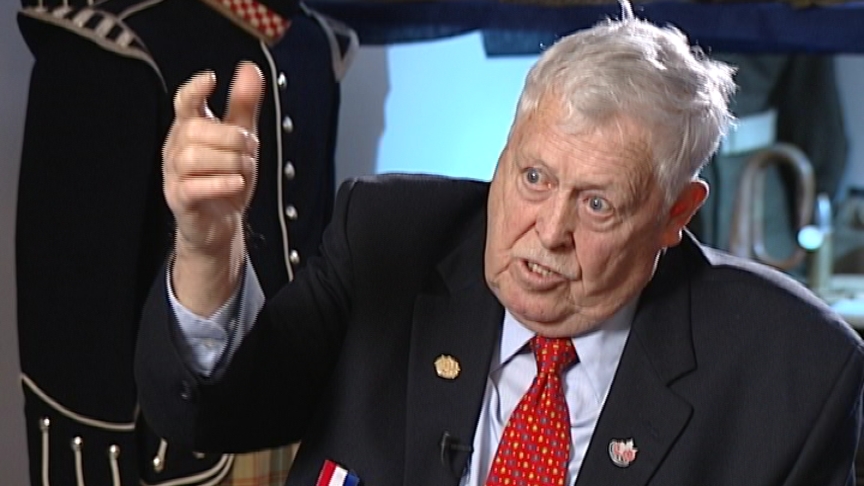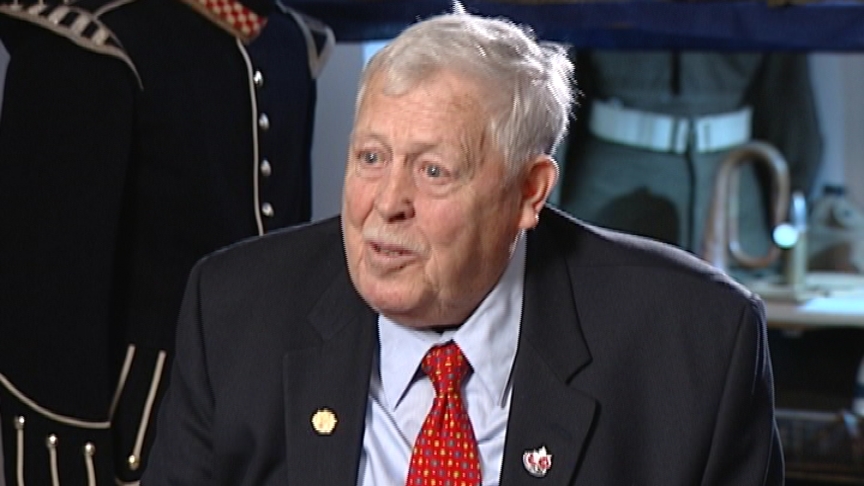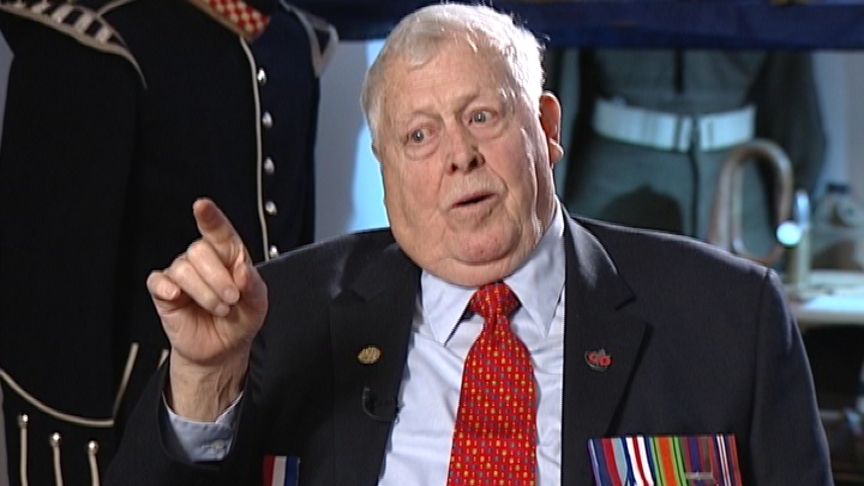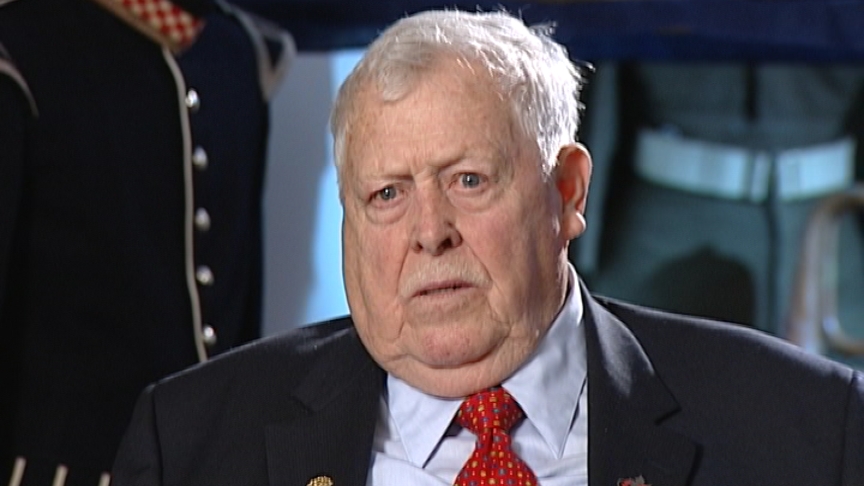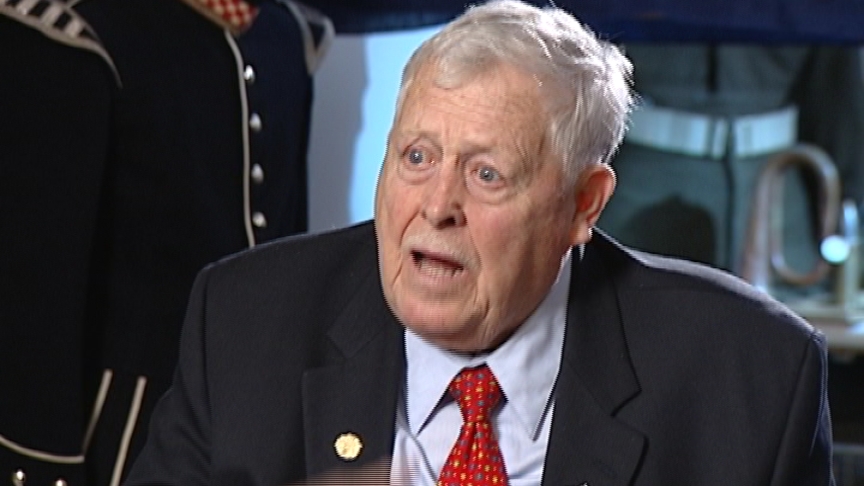And then, when the shooting starts and somebody starts shooting
at you, you're naturally trained to shoot back or throw grenades,
or what you have to do. So all soldiers had a stint at that,
more or less. There isn't a soldier that probably run into
moaning minnies, shelling and everything else that was over
there. Some of them did actually kill other soldiers. I had an
opportunity once, and I done what I had to.
Interviewer: Was it difficult?
Easy. It happens so quick. Not easy. You don't take time to know
what you're doing, or you're not there. If you've ever hunted,
and you have a hair trigger or trigger, we... With the Sten gun
it had the over your shoulder, and the trigger, you always cocked
it when you went into a building. And if you went in, you held
your hand on the Bren gun and you looked around. And all you done
is touch the trigger and it's pointed right and, and it's not
easy to have anything to do with killing people, that is not
easy, but it happens so fast you didn't know what happened.
Unless you're a sniper, then a sniper takes speed and he sees
what he does, but the average soldier just running out in the
field or where he was going, into what town, around buildings,
or what city and whatever. And the Germans, some German soldiers
come out on him, and he just open up fire, he hit one of them
or killed one of them, or three or four soldiers were shooting,
and they killed some of them, so that's the way it happens.
Once it starts, it's hard to stop it.
Interviewer: Do you feel for the other soldier?
Oh, yes. Oh, yeah. Yeah. There's things that come to your mind,
that I have to kind of get yelling and mad to get away from that,
right. Things that come to your mind, you see that young fellow
and you often wonder "Did he have a mother?" "Did he have
a wife and two children?" He's the same as us. Did you
eliminate their chance of life? Yes, it's hard, but you must do
the job. That's it. The one thing that helped me, and I think
most of them was that they were warned, all they had to do
was surrender. A very easy thing and it wouldn't have happened.
So therefore I think all we have to do is, is make wars like this
flu that they got now that we have to have vaccination against it
It's too bad, but that soldiers have to kill other soldiers and
soldiers have to be killed and so on, so forth, but it happens.
And when a person says it's easy, or asks you if it's easy,
it's... I don't think anything like that is easy, I can't see
how it can be. But it's easy when it happens, because you're
trained to do that. And when they give you the machine gun
or a rifle, you're trained to pull the trigger and shoot,
you're trained to shoot at a target, which is a, a soldier.
You're trained to stick a bayonet into a soldier that's hung
on a... You're trained to do that, so... probably, that training
as a young person... you do what you're told. And, as I say,
I have to say again that I don't think there wasn't a time when
I wasn't scared. I, I can't think of it. Even on the ship,
I can't think of it. But I knew that... I can't say, "Here,
I'm going home." We're here to do a job, and that's
what I signed up to do. And that's what I had to do.



